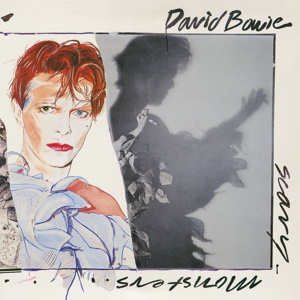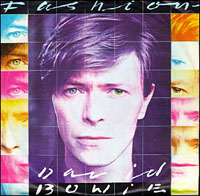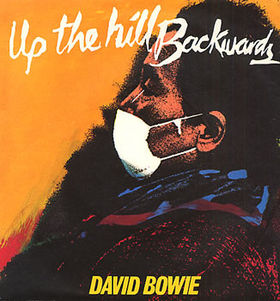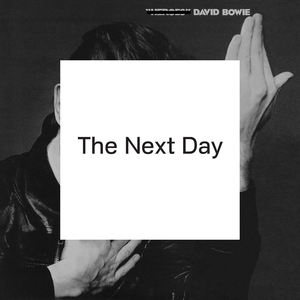Related Research Articles

Reality is the 24th studio album by English musician David Bowie, originally released in Europe on 15 September 2003, and the following day in America. It was the artist's second release through his ISO Records label, in conjunction with Columbia Records. Co-produced by Bowie and longtime collaborator Tony Visconti, it was recorded between January and May 2003 at Looking Glass Studios in New York City. Having become re-energised to tour again following the Heathen Tour, Bowie envisioned Reality as a set of songs that could be played live. As such, most of the musicians consisted of Bowie's then-touring band.

Scary Monsters , also known simply as Scary Monsters, is the 14th studio album by English musician David Bowie, released on 12 September 1980 through RCA Records. Over the previous three years, Bowie had garnered massive artistic success with the "Berlin Trilogy", which consisted of Low, "Heroes" and Lodger (1977–1979). However, the trilogy had proven less successful commercially. By 1980, numerous artists Bowie had inspired with the trilogy were out-performing him commercially, leading him to desire a more commercial sound for his next record.

Heathen is the 23rd studio album by English musician David Bowie. It was originally released in Europe on 10 June 2002, and the following day in America. After departing EMI/Virgin, it was his first release through his newly-formed ISO Records label, in conjunction with Columbia Records. It reunited Bowie with producer Tony Visconti, marking the two's first full-album collaboration since 1980's Scary Monsters. Recording mostly took place at New York studios from August 2001 to January 2002 and featured overdubs from several guest musicians, including Dave Grohl and Pete Townshend. Two tracks, including "Afraid" and "Slip Away" evolved from Bowie's shelved Toy album, while three were covers by Pixies, Neil Young and the Legendary Stardust Cowboy.

"Fashion" is a song by English musician David Bowie from his 1980 album Scary Monsters . Co-produced by Bowie and Tony Visconti and recorded from February to April 1980 at New York and London, it was the last song completed for the album. Originating as a reggae parody titled "Jamaica", "Fashion" is a post-punk, dance and funk track structurally similar to Bowie's "Golden Years". King Crimson guitarist Robert Fripp contributed lead guitar.

"Scary Monsters " is a song by English singer-songwriter David Bowie, released as the title track of his 1980 album Scary Monsters . It was also issued as the third single from that album in January 1981. Coming as it did in the wake of two earlier singles from Scary Monsters, "Ashes to Ashes" in August 1980 and "Fashion" in October the same year, NME critics Roy Carr and Charles Shaar Murray labelled its release another instance "in the fine old tradition of milking albums for as much as they could possibly be worth". The song was subsequently performed on a number of Bowie tours.

"Up the Hill Backwards" is a song by English musician David Bowie, released on his 1980 album Scary Monsters . It was later issued by RCA Records as the fourth and final single from the album in March 1981. Originally written under the title "Cameras in Brooklyn", the song was recorded between February and April 1980 at the Power Station in New York City and Good Earth Studios in London. The recording features backing vocalists, guitar contributions from Robert Fripp and acoustic guitar played by co-producer Tony Visconti. Lyrically, the song concerns the struggles of facing a crisis, partially influenced by Bowie's divorce from his wife Angie. Musically, the song contains numerous time signature changes and a Bo Diddley-inspired beat.

"Can You Hear Me?" is a ballad by English musician David Bowie from his 1975 album Young Americans. Bowie called it a "real love song", written with someone in mind, but he did not identify them. The song was released as a single in November 1975 on the B side of "Golden Years".
"Blackout" is a song written and recorded by David Bowie in 1977 for the album "Heroes". Author Nicholas Pegg described the track as "typical of the darkly exhilarating sonic schizophrenia of the "Heroes" album”, while biographer David Buckley remarked on "a backing verging on industrial". Regarding its lyrics and subject matter, Bowie himself said in 1999 that the song "did indeed refer to power cuts. I can't in all honesty say that it was the NY one [New York City blackout of 1977], though it is entirely likely that that image locked itself in my head."

"Fantastic Voyage" is a song written by David Bowie and Brian Eno for the 1979 album Lodger. It has almost exactly the same chord sequence as "Boys Keep Swinging", from the same album. It has also appeared as the b-side to the "Boys Keep Swinging" and "Peace on Earth/Little Drummer Boy" singles, and the US edition of "D.J.".

"Look Back in Anger" is a song written by English artists David Bowie and Brian Eno for the album Lodger (1979). It concerns "a tatty 'Angel of Death'", and features a guitar solo by Carlos Alomar.
"It's No Game" is a song written by English musician David Bowie for his 1980 album Scary Monsters , featuring lead guitar played by Robert Fripp. The song is split into two parts, opening and closing the album. "(No. 1)" is musically sinister, featuring Bowie screaming lyrics and Japanese narration provided by actress Michi Hirota. "(No. 2)", a stark contrast to "(No. 1)", is much calmer, which Bowie's biographers symbolise as Bowie facing the same situation in "(No. 1)", but after the album's duration.
"Teenage Wildlife" is a song written by David Bowie in 1980 for the album Scary Monsters . Running at almost seven minutes, the song was the longest track on Scary Monsters, and Bowie's longest composition since "Station to Station" (1976), although it was surpassed in length by later tracks such as 2003's "Bring Me the Disco King" and 2016's "Blackstar".
"Scream Like a Baby" is a song written by David Bowie. It appears on the 1980 album Scary Monsters .

"New Killer Star" is a song written and performed by David Bowie in 2003 for his album Reality. This was the first single from the album.
"The Loneliest Guy" is a song written by David Bowie in 2003 for his album Reality. It's a slow-tempo minimalistic piece in which, according to James E. Perone, "Bowie's character also lives in denial: in spite of the shards of glass that he finds near his windows, the solitary life he lives, and 'all the pages that have turned,' he expresses the belief that he is not 'the loneliest guy' in the world, but, rather, 'the luckiest guy'." The biographer also writes: "The slow, solemn pace of the piece, the long phrases sung with a slowly pulsing vibrato suggest a profound sadness."
"Bring Me the Disco King" is a song written by David Bowie in the early 1990s, and recorded three times, although only the last recording was released as part of Bowie's Reality album in 2003. A remix was also released in 2003 as part of the Underworld movie soundtrack.

A Reality Tour was a worldwide concert tour by David Bowie in support of the Reality album. The tour began on 7 October 2003 at the Forum Copenhagen, Denmark, continuing through Europe, North America, Asia, including a return to New Zealand and Australia for the first time since the 1987 Glass Spider Tour. At over 110 shows, the tour was the longest tour of Bowie's career. A heart attack in late June 2004 forced the cancellation of some dates near the end of the tour. Bowie retired from performing live in 2006, making this tour his last.

"Ashes to Ashes" is a song by English singer-songwriter David Bowie, originally released on 1 August 1980 as the lead single from his 1980 album Scary Monsters . Co-produced by Bowie and Tony Visconti, it was recorded from February to April 1980 in New York and London and features guitar synthesiser played by Chuck Hammer. An art rock, art pop and new wave song led by a flanged piano riff, the lyrics act as a sequel to Bowie's 1969 hit "Space Oddity", depicting the astronaut Major Tom as a "junkie" alone floating in space. Bowie partially based the lyrics on his own experiences with drug addiction throughout the 1970s.

The Next Day is the 25th studio album by English musician David Bowie, released over several dates in March 2013 through his ISO Records label, under exclusive license to Columbia Records. It was his first studio release in ten years after retreating from the public due to a heart attack on the A Reality Tour in 2004. Co-produced by Bowie and longtime collaborator Tony Visconti, the album was recorded in New York City at the Magic Shop and Human Worldwide Studios between May 2011 and October 2012. It featured contributions from new musicians and returning contributors, including Gerry Leonard, Earl Slick, Gail Ann Dorsey, Steve Elson, Sterling Campbell and Zachary Alford. The sessions took place under secrecy, with all personnel involved signing non-disclosure agreements.
"Karma Man" is a song written and recorded by English singer-songwriter David Bowie. It was recorded on 1 September 1967 at Advision Studios in London and marked the beginning of Bowie's working relationship with producer Tony Visconti, which would last for the rest of the artist's career. The song expresses Bowie's growing interest in Tibetan Buddhism, concerning a character who is put on display as a "freak" in a carnival tent. The music reflects the Buddhist themes and was likened to the works of the Beatles. Initially proposed as a B-side, it remained unreleased until The World of David Bowie compilation in March 1970. Bowie performed the song during two of his BBC radio sessions, one of which was released on the 2000 compilation Bowie at the Beeb.
References
- 1 2 3 Nicholas Pegg, The complete David Bowie, Reynolds & Hearn, 2006, p. 72.
- ↑ James E. Perone, The Words and Music of David Bowie, Greenwood Publishing Group, 2007, p.140.
- ↑ O'Leary, Chris (2019). Ashes to Ashes: The Songs of David Bowie 1976–2016. London: Repeater. p. 533. ISBN 978-1-91224-830-8.